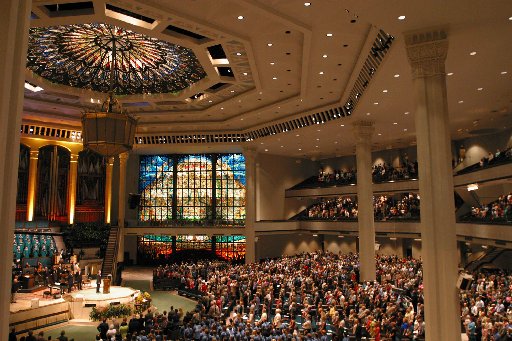
Thirteen years ago, my wife and I co-led a small group of relatively young adults with our church in Nashville. One night in our living room, we happened to be studying a Bible passage that dealt with the structure of the church. As I was explaining it — in the most boring way possible, I’m sure — a very bright medical school student interrupted me, “Wait a minute, this sounds like the government.” She was right. That’s exactly what it was: church government.
This young woman did not like my answer. She, like so many others in the church today, had come to faith in a very experiential and individualistic setting. The faith she’d developed to that point was very much a “me and Jesus” kind of thing.
The church, from that perspective, was little more than a club where like-minded Jesus followers could get together and encourage one another. To open up a Bible and speak of church officers, sacraments, discipline and the like was to violate her sense of organic faith.
There is much about that perspective that I can appreciate, but it also seems to play right into the spirit of our present age. This spirit is incredibly anti-institutional, especially when it comes to matters of faith. When most evangelicals hear phrases like “church government,” they think of old men in dusty robes and churches that have been strangled to death by a cold orthodoxy. Or, worse, they think of self-protective churches that have made an art of circling their wagons around abusive leadership. Institutions, they think, are the enemy of genuine faith.
As a younger man, I mostly agreed with that perspective. But then I opened up the Bible to discover that God designed the church to have a certain amount of structure. The New Testament describes the church as both an organism and an organization. It has plenty to say about authentic faith and institutional structure — complete with officers, processes for ordaining those officers and instructions for how members of the church should conduct themselves in the church (Matthew 16:13-20; 18:15-20; Acts 6:1-7; 14:23; Philippians 1:1; 1 Timothy 3:1-13; Titus 1:5; etc.).
If all that is true (and it is), then perhaps the anti-institutional spirit of our age is not a spirit from God. And, for those who’ve accepted it, that spirit is significantly stunting our Christian growth.
I could take you down the rabbit hole right now in terms of good biblical government. But, for now, I’d like to offer this simple encouragement. The church is God’s gift to His people. It is the trellis upon which the vine of faith in Christ is designed to grow and flourish. With that said, don’t be a lone ranger Christian with no use for the Church.
Instead, look for a place where the saints gather to encourage one another (Hebrews 10:24-25), hear the Word taught by those who are qualified and set apart to teach it (1 Timothy 5:17) and submit themselves to the godly oversight of those who’ve been called by God to keep watch over their souls (Hebrews 13:17).
You won’t find the “me and Jesus” approach to faith anywhere in the Bible, but what you will find is a vision of brothers and sisters in Christ loving, serving and supporting one another as God uses the institution He designed to build His people up for His glory and their good.
Kenny Silva is the Senior Pastor of Hickory Grove Presbyterian Church (PCA) in Mt. Juliet, a Guest Lecturer at Reformed Theological Seminary (Atlanta), and the host of Books ‘n Things with Dr. Kenny on YouTube. He received his Ph.D. in Systematic Theology from Trinity Evangelical Divinity School and is the author of several books, articles, and essays. Kenny resides in Lebanon with his wife and their four children.



